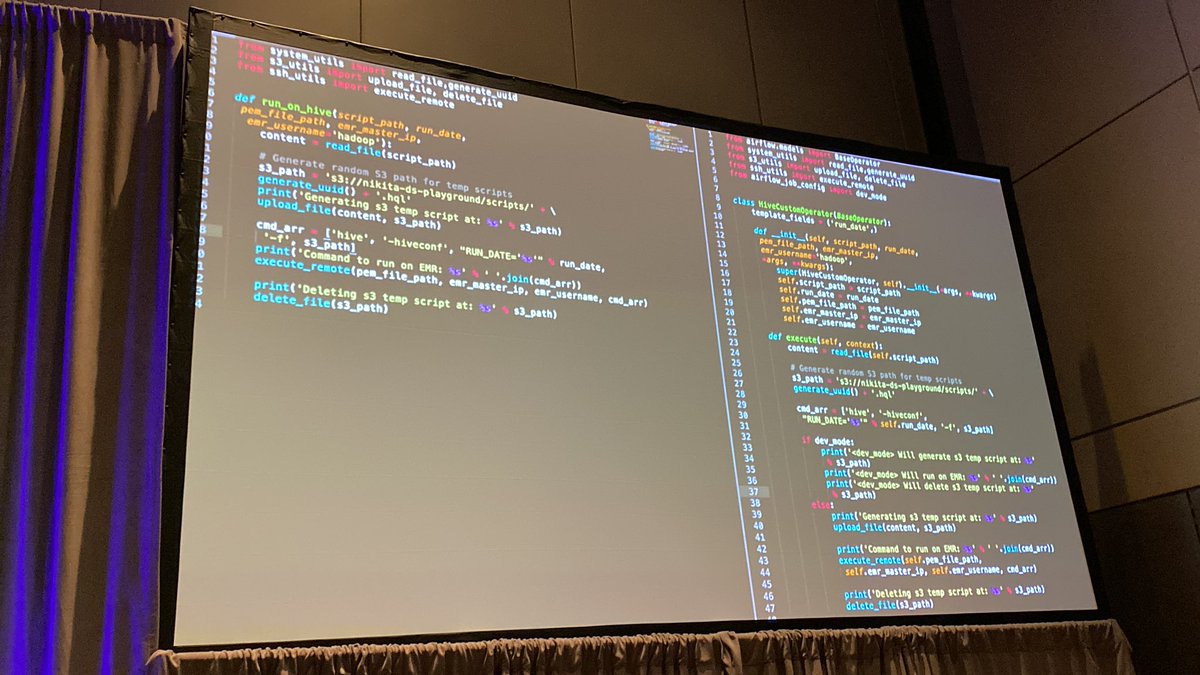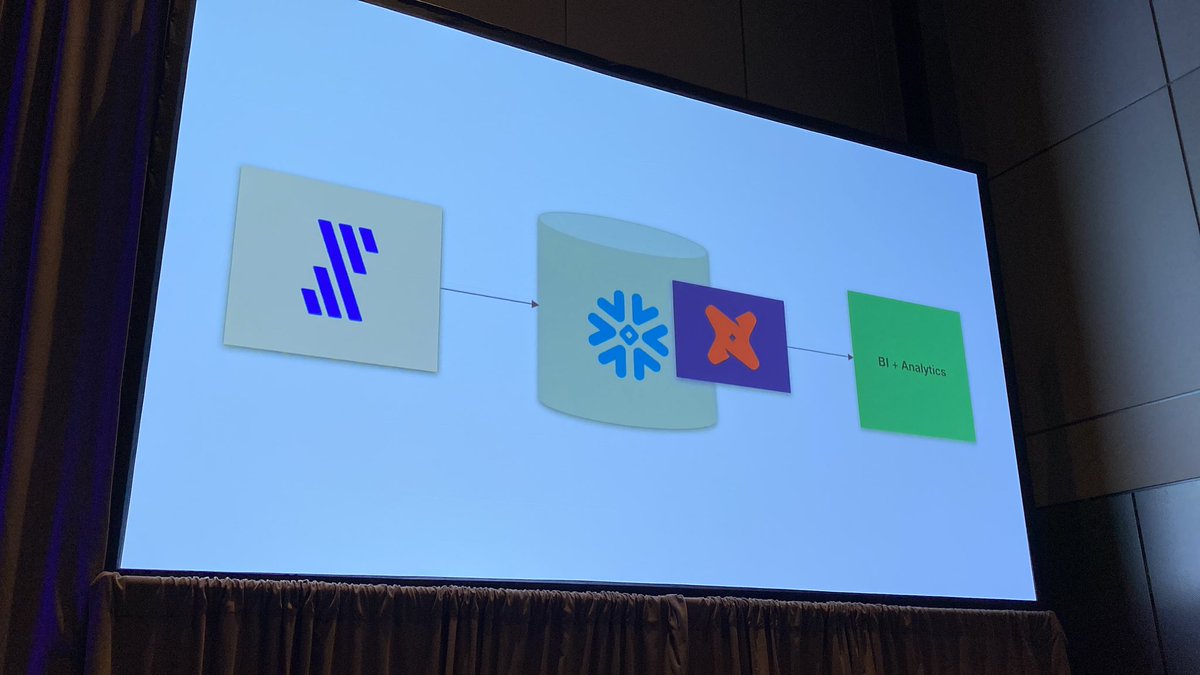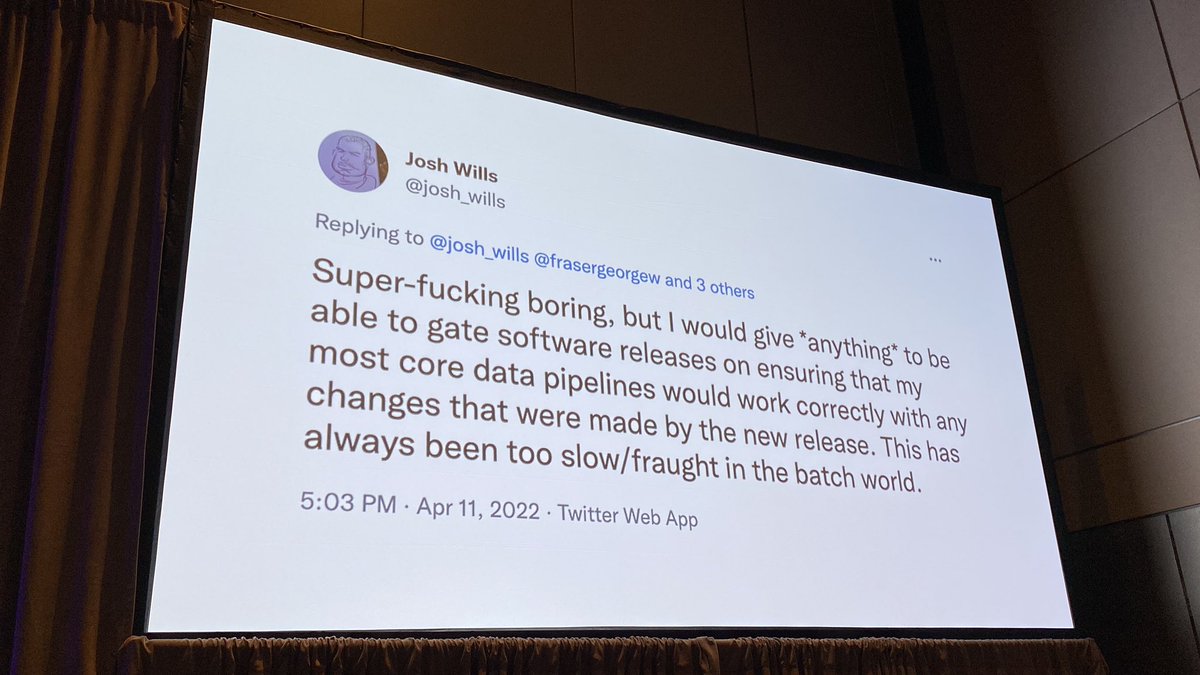
Apparently data people are really boring people, so the hype around big data dying down fitted well #current22 

The most boring diagram in IT. We’ve standardised the tooling around all this (except BI) #current22 

Fivetran, dbt, snowflake are the boring defaults #Current22 

Databricks and snowflake came to market in different ways. Snowflake has the mindshare. #current22 

Community search results in dbt - snowflake is 10x more popular. Community matters! #current22 

Why is snowflake successful? Databricks sells shiny technology. Snowflake is faster and cheaper. #current22 



Airflow for transformation. Powerful but complex. Dbt just uses sql. Kinda boring. #current22 



Faster internet with cable, faster web browsers with chrome, faster video editing with TikTok - all things people were already doing, but faster. Enabled new use cases that people hadn’t thought of. #current22
Because it’s easy to get data in from asana etc, Mode build reports against it. If it wasn’t easy, they wouldn’t. #current22 

The elephant in the room at a data streaming conference… where is the streaming in this? #current22 

There just aren’t a lot of use cases for streaming. We’re not Uber, Google, amex, etc. We’re the 99% 



Echoes of Strata at #current22 with its agenda based on technology for technology’s sake 

Let’s make streaming boring. Forget the fancy use cases. Let’s just make it easy. #Current22 

@bennstancil is hitting the nail on the head here. Streaming will get adoption when it’s easy and boring and let’s us do what we’re doing already but just faster. It’s not about the technology. #current22
#current22 boring is what sells 

Loved this talk from @bennstancil. Make sure you check out his newsletter at benn.substack.com
#Current22
#Current22
• • •
Missing some Tweet in this thread? You can try to
force a refresh





















